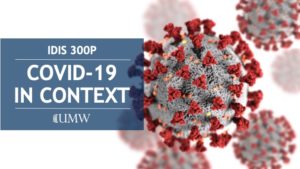What do you do if you hear a student/employee is positive or a confirmed close contact?
From time to time, we may hear of or interact with students or employees who reveal that they are positive or are a close contact to a confirmed positive. Here’s what we should do as staff and faculty:
- Stay calm. If MMDC is followed and our classrooms maintain the established 64 square feet social distancing requirements, the risk has been minimized and members of the UMW community would not be considered close contacts.
- Self-report. If you are alerted by a student or employee that they have tested positive, encourage them to self-report.
- Email Dave and copy Safety Mike. If you become aware that a member of the UMW community has tested positive, email Dave Fleming – COVID-19 Monitoring and Tracing Coordinator – (dflemin3@umw.edu) and CC Mike Muckinhaupt – Director of Emergency Management and Safety – (mmuckinh@umw.edu).
- Let UMW processes take over. UMW contact tracing efforts, in concert with the Rappahannock Area Health District (RAHD), will immediately assess the situation and make determinations about next steps, including notifying students, faculty and staff who may have been close contacts. Generally, because of MMDC and our classroom configurations, students and faculty in classes will not be close contacts.
If you have any questions, do not hesitate to contact us.
Jeff McClurken and Tim O’Donnell
COVID-19 Co-coordinators
